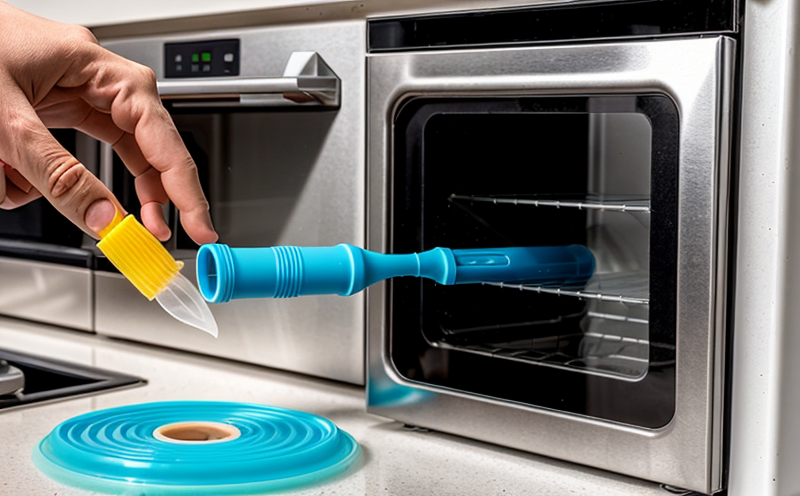EN 71-3 Migration of Heavy Metals Testing of Household Plastics
The EN 71-3 standard is a European safety standard that sets out requirements for the migration of certain elements from toys and similar articles intended for use by children. This regulation ensures that products are safe, especially considering the potential risks associated with heavy metal content in household plastics.
This testing procedure aims to identify whether any heavy metals such as lead (Pb), cadmium (Cd), chromium (Cr), mercury (Hg), and others can leach out from household plastic items. The focus here is particularly on products that children might come into contact with, including toys, feeding utensils, furniture, and other similar items.
The testing process involves the immersion of the sample in a specified solution under controlled conditions for a defined period. After this time, the leachate is analyzed using atomic absorption spectrophotometry (AAS) or inductively coupled plasma optical emission spectroscopy (ICP-OES). The results are compared against the permissible limits set forth by EN 71-3.
This service ensures that manufacturers and suppliers can meet regulatory requirements, ensuring product safety. It also helps companies to maintain a competitive edge by demonstrating their commitment to quality and compliance with international standards.
The testing process is critical in identifying potential hazards early on. By adhering to this standard, businesses can avoid costly recalls and legal issues associated with non-compliance. This proactive approach not only protects the end-users but also builds trust within the market.
Furthermore, this service aids in product development by providing insights into material selection and formulation adjustments needed to ensure compliance. It supports ongoing quality control measures by offering periodic checks on product safety.
| Heavy Metal | Permissible Limit (mg/L) |
|---|---|
| Pb (Lead) | 90 mg/L |
| Cd (Cadmium) | 75 mg/L |
| Hg (Mercury) | 65 mg/L |
| Ti (Titanium) | 1000 mg/L |
The above table presents the permissible limits for heavy metals according to EN 71-3. It is essential for manufacturers and suppliers to understand these limits to ensure their products meet safety standards.
In summary, this service plays a crucial role in safeguarding public health by ensuring that household plastics do not pose risks due to heavy metal content. By adhering to the stringent requirements of EN 71-3, businesses can enhance their reputation and maintain compliance with international regulations.
Applied Standards
The testing for migration of heavy metals in household plastics is primarily guided by the European Standard EN 71-3: Safety of toys – Part 3: Migration of certain elements. This standard specifies requirements and test methods for determining the migration of specific elements from articles intended for use by children, including household plastics.
EN 71-3 covers a range of elements such as lead (Pb), cadmium (Cd), chromium (Cr), mercury (Hg), and others. The standard provides detailed procedures on how to perform the migration tests, including sample preparation, leaching conditions, and analysis methods using atomic absorption spectrophotometry or inductively coupled plasma optical emission spectroscopy.
It is important to note that this standard also addresses other aspects of toy safety beyond just heavy metal content. However, for our specific service, the focus is on ensuring compliance with the migration limits set out for heavy metals as part of EN 71-3.
Customer Impact and Satisfaction
- Enhanced Product Safety: Ensures that household plastics used in products do not contain harmful levels of heavy metals.
- Avoids Regulatory Penalties: Helps businesses avoid potential fines and other penalties associated with non-compliance.
- Bolsters Brand Reputation: Demonstrates a commitment to quality and safety, which can enhance brand reputation and consumer trust.
- Supports Product Development: Provides valuable insights into material selection and formulation adjustments needed for compliance.
- Ongoing Compliance: Offers periodic checks on product safety, ensuring ongoing adherence to regulatory standards.
The satisfaction of our customers is paramount. By providing accurate, reliable testing results and thorough reports, we ensure that businesses can confidently meet their legal obligations while maintaining the highest standards of quality.
Use Cases and Application Examples
This service finds application in various sectors where household plastics are used. Here are some specific examples:
- Toys and Play Equipment: Ensuring that toys made from plastic materials do not contain harmful levels of heavy metals.
- Furniture: Verifying the safety of plastic components in furniture, especially those items that children can come into contact with.
- Cooking Utensils and Appliances: Ensuring that plastic parts used in cooking equipment do not leach harmful elements when exposed to food or water.
- Sports Equipment: Guaranteeing the safety of plastics used in sports gear, including those items that may come into contact with skin or be used by children.
In each case, this testing service ensures that products meet the stringent requirements set out by EN 71-3, thereby protecting public health and ensuring consumer confidence.





